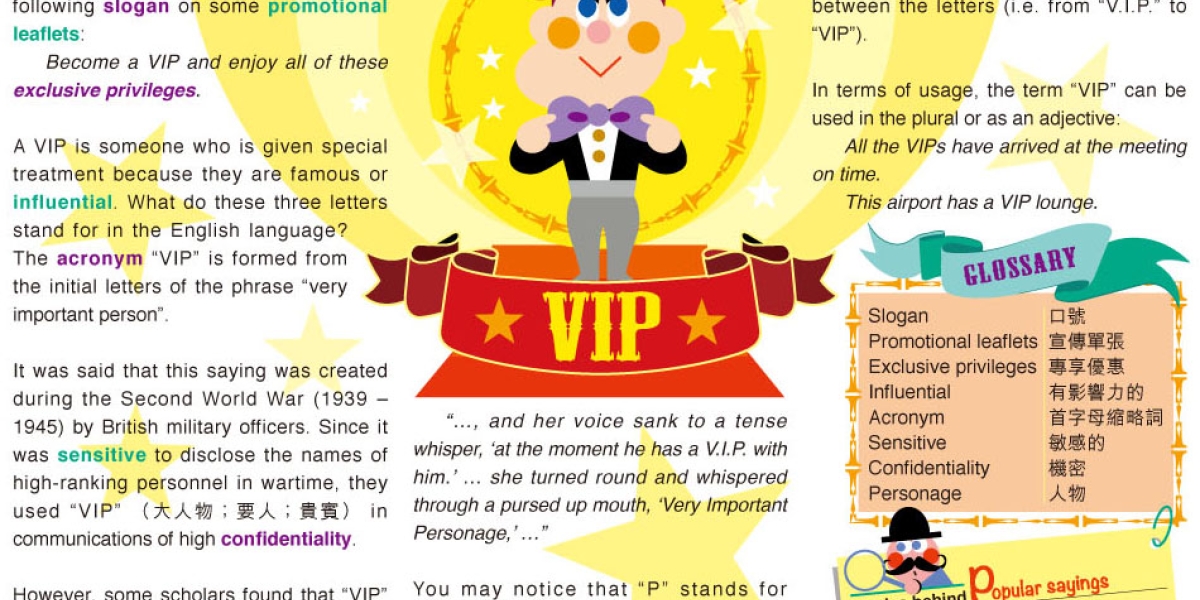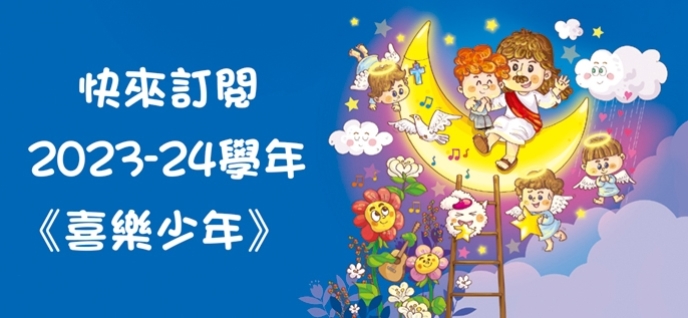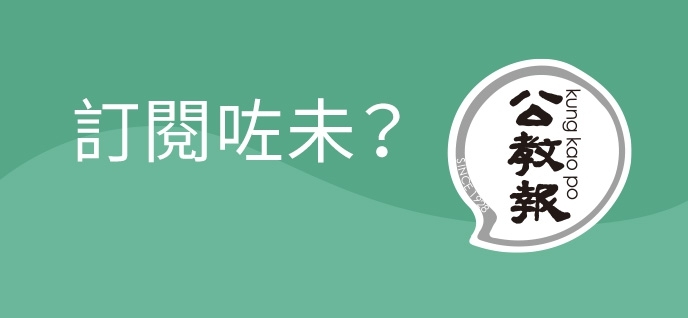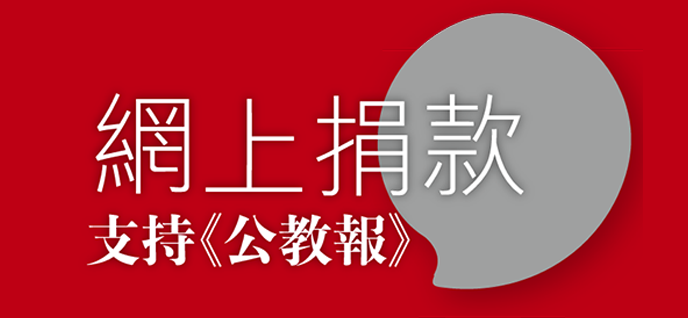
VIP
Very often when you dine out or go shopping with your family, you will see the following slogan on some promotional leaflets:
Become a VIP and enjoy all of these exclusive privileges.
A VIP is someone who is given special treatment because they are famous or influential. What do these three letters stand for in the English language? The acronym “VIP” is formed from the initial letters of the phrase “very important person”.
It was said that this saying was created during the Second World War (1939 – 1945) by British military officers. Since it was sensitive to disclose the names of high-ranking personnel in wartime, they used “VIP” (大人物;要人;貴賓) in communications of high confidentiality.
However, some scholars found that “VIP” was used by Scottish writer Compton Mackenzie in his book “Water on the Brain” in 1933, before World War II.
“..., and her voice sank to a tense whisper, ‘at the moment he has a V.I.P. with him.’ ... she turned round and whispered through a pursed up mouth, ‘Very Important Personage,’ ...”
You may notice that “P” stands for “personage” in the book. It is uncertain when “person” started to represent “P” in the history of this word formation.
When an acronym becomes more accepted by people, it tends to drop the full stops between the letters (i.e. from “V.I.P.” to “VIP”).
In terms of usage, the term “VIP” can be used in the plural or as an adjective:
All the VIPs have arrived at the meeting on time.
This airport has a VIP lounge.
|
Slogan
|
口號
|
|
Promotional leaflets
|
宣傳單張
|
|
Exclusive privileges
|
專享優惠
|
|
Influential
|
有影響力的
|
|
Acronym
|
首字母縮略詞
|
|
Sensitive
|
敏感的
|
|
Confidentiality
|
機密
|
|
Personage
|
人物
|






